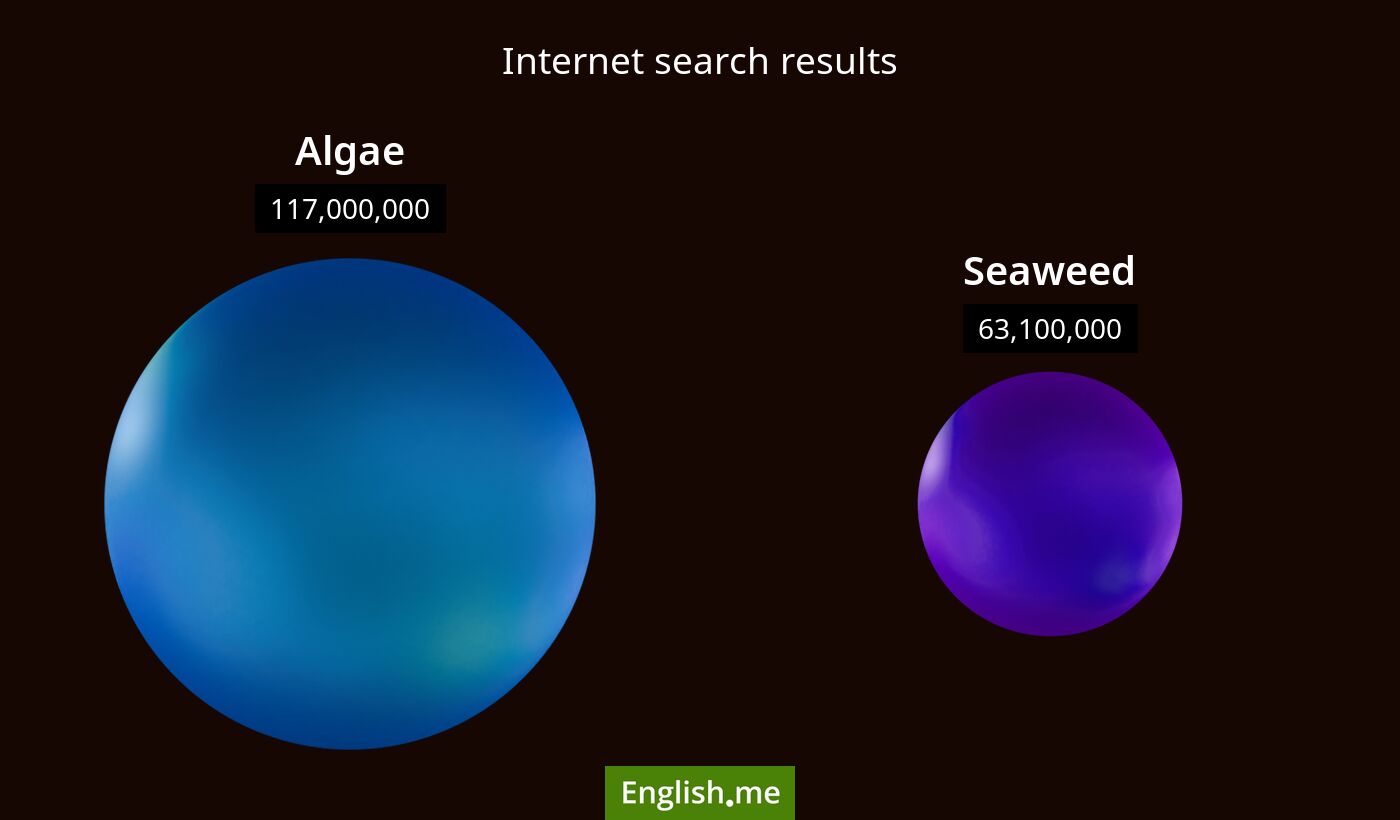Under the surface: "algae" vs. "seaweed"
Reviewed and edited by  Lloyd Cooper 16/10/2024, 12:13
Lloyd Cooper 16/10/2024, 12:13
English.me team member

 What is similar?
What is similar?
Both algae and seaweed refer to plant-like organisms that grow in aquatic environments. They are both photosynthetic and contribute to the ecosystems by producing oxygen and serving as food sources for marine life.
 What is different?
What is different?
Algae is a broad term that includes a diverse range of photosynthetic organisms, including microscopic phytoplankton and large kelp. Seaweed is a subset of algae, specifically referring to larger, multicellular forms of algae that are often found in marine environments. Seaweed typically grows in the ocean, whereas algae can grow in both freshwater and marine environments.
 Which one is more common?
Which one is more common?

 Examples of usage
Examples of usage
Algae- Algae can be found in both freshwater and marine environments.
- Some algae are used in biofuel production due to their high lipid content.
- Seaweed is often used in culinary dishes, such as sushi and salads.
- The coastal waters are rich with different types of seaweed.

 English
English español
español française
française italiano
italiano deutsche
deutsche 日本語
日本語 polski
polski česky
česky svenska
svenska Türkçe
Türkçe Nederlands
Nederlands